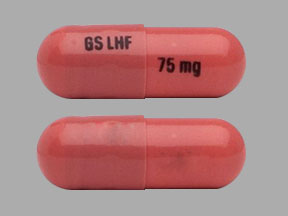Dabrafenib Interactions
There are 512 drugs known to interact with dabrafenib, along with 7 disease interactions, and 1 alcohol/food interaction. Of the total drug interactions, 88 are major, 408 are moderate, and 16 are minor.
- View all 512 medications that may interact with dabrafenib
- View dabrafenib alcohol/food interactions (1)
- View dabrafenib disease interactions (7)
Most frequently checked interactions
View interaction reports for dabrafenib and the medicines listed below.
- Activated Charcoal (charcoal)
- Advil (ibuprofen)
- Cartia XT (diltiazem)
- Centrum Silver (multivitamin with minerals)
- Centrum Silver Men's (multivitamin with minerals)
- Co-trimoxazole (sulfamethoxazole / trimethoprim)
- Coenzyme Q10 (ubiquinone)
- Copper (copper gluconate)
- Dextrose (glucose)
- DHEA (dehydroepiandrosterone)
- Diltiazem Hydrochloride SR (diltiazem)
- Glycerol (glycerin)
- Iodides (sodium iodide)
- Iron Sulfate (ferrous sulfate)
- L-Arginine (arginine)
- L-Carnitine (levocarnitine)
- L-Cysteine (cysteine)
- Lithium Carbonate ER (lithium)
- Mekinist (trametinib)
- Metoprolol Succinate ER (metoprolol)
- Metoprolol Tartrate (metoprolol)
- Multi Vitamin+ (multivitamin)
- Novolog (insulin aspart)
- Paracetamol (acetaminophen)
- Quercetin (bioflavonoids)
- Valproate Sodium (valproic acid)
- Viagra (sildenafil)
- Vitamin B6 (pyridoxine)
- Vitamin C (ascorbic acid)
- Vitamin D3 (cholecalciferol)
Dabrafenib alcohol/food interactions
There is 1 alcohol/food interaction with dabrafenib.
Dabrafenib disease interactions
There are 7 disease interactions with dabrafenib which include:
More about dabrafenib
- dabrafenib consumer information
- Compare alternatives
- Reviews (2)
- Side effects
- Dosage information
- During pregnancy
- Drug class: multikinase inhibitors
- Breastfeeding
- En español
Related treatment guides
Drug Interaction Classification
| Highly clinically significant. Avoid combinations; the risk of the interaction outweighs the benefit. | |
| Moderately clinically significant. Usually avoid combinations; use it only under special circumstances. | |
| Minimally clinically significant. Minimize risk; assess risk and consider an alternative drug, take steps to circumvent the interaction risk and/or institute a monitoring plan. | |
| No interaction information available. |
See also:
Further information
Always consult your healthcare provider to ensure the information displayed on this page applies to your personal circumstances.


